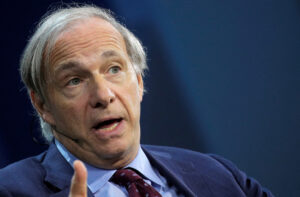Some links in this article may be affiliate links, meaning we may earn a small commission if you make a purchase through them.
“People follow leaders who take care of others and who are seen to be making sacrifices. “The Koreans have this concept called jeong, which means, literally, giving a piece of your heart. And I think that’s what comes across. Words are cheap. If you can embody that concept of jeong and share a piece of your heart with your employees, that’s the way they’re going to follow you.”
Michael B Kim
Who was Michael?:
Michael ByungJu Kim, born in 1963, made a significant impact as a Korean American entrepreneur. He founded and chaired MBK Partners, a leading private equity firm based in Seoul, earning him the nickname “Godfather of Asian private equity.” Kim also served as vice chair of the Board of Managers at Haverford College and was recognized on Bloomberg’s Most Influential People list and Forbes Asia’s Heroes of Philanthropy.
Raised in Seoul before moving to New Jersey, Kim became a U.S. citizen and graduated from Haverford College in 1985. He later earned an MBA from Harvard Business School. Kim began his career at Goldman Sachs before joining Salomon Smith Barney and then Carlyle Group as president of Carlyle Asia.
In 2005, Kim founded MBK Partners, which grew to manage over $30 billion in assets, making it Asia’s largest independent private equity firm. He remained a prominent figure in finance, amassing a net worth of $9.7 billion by April 2023, ranking him as the wealthiest individual in Korea and #190 globally, according to Forbes.
Exploring the Concept of Jeong:
In the realm of leadership, there exists a profound yet often overlooked concept that transcends cultural boundaries and speaks to the essence of human connection: jeong. Rooted in Korean culture, jeong embodies the idea of giving a piece of your heart, fostering deep bonds of empathy, compassion, and mutual respect. While its origins may be traced back to Korea, the principles of jeong hold universal relevance in the context of modern leadership, offering profound insights into building strong, resilient organizations driven by a sense of shared purpose and belonging.
At its core, jeong represents a deep sense of care and connection between leaders and their followers, characterized by empathy, understanding, and a genuine commitment to the well-being of others. This concept goes beyond mere professionalism or transactional relationships; it speaks to the fundamental human need for belonging and acceptance. In a world where technology often distances us from genuine human connection, jeong serves as a powerful antidote, reminding us of the importance of fostering meaningful relationships in the workplace.
Numerous examples abound of leaders who embody the principles of jeong in their approach to leadership, yielding remarkable results for their organizations. One such example is Tony Hsieh, the former CEO of Zappos, who built a culture centered around care, trust, and employee empowerment. By prioritizing the well-being of his employees and fostering a sense of belonging, Hsieh transformed Zappos into a thriving company known for its exceptional customer service and employee satisfaction.
Similarly, Southwest Airlines, under the leadership of Herb Kelleher, embraced a culture of jeong that prioritized the needs of both employees and customers. Kelleher’s emphasis on treating employees like family and fostering a spirit of camaraderie contributed to Southwest’s reputation as a beloved employer and industry leader in customer satisfaction.
Practical Strategies for Embracing Jeong:
While the concept of jeong may seem abstract, there are practical strategies that leaders can employ to cultivate a culture of care and connection in their organizations.
Active Listening: Leaders can foster an environment of open communication and trust by actively listening to their team members. This involves not only hearing what is being said but also understanding the underlying emotions and concerns. By giving full attention to their employees’ perspectives and experiences, leaders can demonstrate empathy and build stronger connections with their teams.
Empathy: Empathy lies at the heart of jeong-centered leadership. Leaders can cultivate empathy by putting themselves in their employees’ shoes, seeking to understand their feelings, motivations, and challenges. By demonstrating empathy, leaders show that they genuinely care about their team members’ well-being and are willing to support them through both professional and personal struggles.
Regular Communication: Transparent and consistent communication is essential for fostering trust and collaboration within teams. Leaders should regularly communicate with their employees, providing updates on organizational goals, changes, and challenges. By keeping employees informed and engaged, leaders create a sense of transparency and belonging, fostering a culture of mutual respect and accountability.
Recognizing and Celebrating Contributions: Acknowledging and celebrating the achievements and contributions of employees is key to fostering a culture of appreciation and recognition. Leaders can publicly recognize individual and team accomplishments, whether through formal awards ceremonies, team meetings, or personalized notes of appreciation. By celebrating successes, leaders reinforce a culture of positivity and motivate employees to continue striving for excellence.
Fostering Belonging Through Team-Building Activities: Team-building activities provide opportunities for employees to connect with one another on a personal level, fostering a sense of belonging and camaraderie. Leaders can organize team-building events, such as retreats, workshops, or social gatherings, that encourage collaboration, communication, and mutual support among team members. These activities help strengthen relationships and build trust within teams, ultimately enhancing teamwork and productivity.
Providing Opportunities for Personal and Professional Growth: Investing in the personal and professional development of employees demonstrates a commitment to their long-term success and well-being. Leaders can provide opportunities for training, mentorship, and career advancement, empowering employees to grow and develop their skills. By nurturing talent and fostering a culture of continuous learning, leaders create an environment where individuals feel valued, motivated, and inspired to excel.
Conclusion:
In conclusion, the concept of jeong offers profound insights into the essence of effective leadership, emphasizing the importance of heart-centered values such as empathy, compassion, and mutual respect. By embracing jeong in their approach to leadership, individuals can create workplaces where people feel valued, supported, and inspired to achieve their full potential. In an increasingly complex and interconnected world, the principles of jeong remind us of the power of human connection to drive meaningful change and create a brighter future for all.
Additional Resources: For those interested in delving deeper into the concept of jeong and its applications in leadership, the following books offer valuable insights and practical guidance:
- “Leaders Eat Last: Why Some Teams Pull Together and Others Don’t” by Simon Sinek
- “Dare to Lead: Brave Work. Tough Conversations. Whole Hearts.” by Brené Brown
- “Servant Leadership: A Journey into the Nature of Legitimate Power and Greatness” by Robert K. Greenleaf
These resources provide valuable perspectives and strategies for cultivating a culture of care, connection, and authenticity in the workplace, ultimately empowering leaders to create environments where individuals can thrive and succeed.




